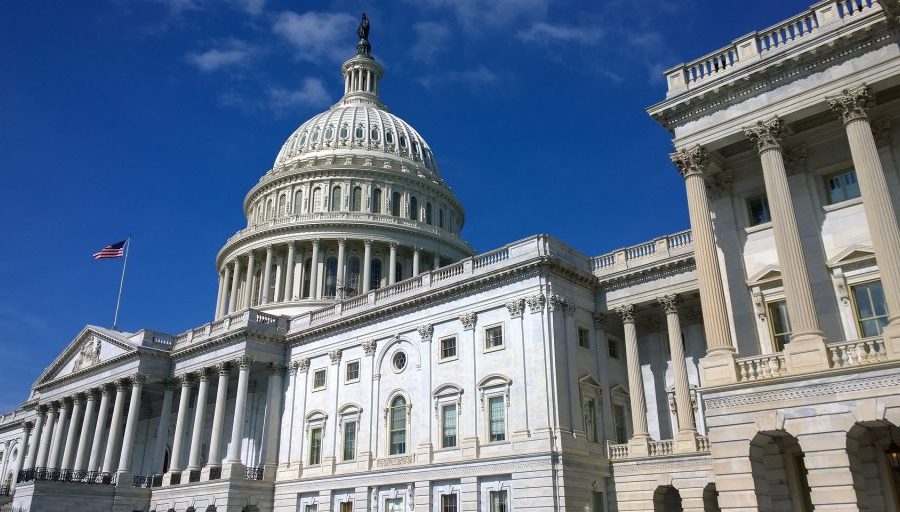NG911 funding not part of current omnibus bill as deadline approaches
Federal funding to pay much of the cost to transition 911 centers to IP-based next-generation 911 (NG911) technology is not included in the $1.7 trillion omnibus funding bill that many in Congress hope to pass prior to Friday’s government-shutdown deadline.
There is no mention of NG911 funding in the 4,155-page omnibus funding text that was released today, but there was language calling for a short-term extension of the FCC’s authority to auction spectrum to March 9. Previously, NG911 funding was attached to legislation that extended the FCC’s auction authority, as well as addressing the funding shortfall in the FCC’s “rip and replace” program that is supposed to pay for U.S. carriers to rid their networks of gear from China-based vendors Huawei and ZTE.
In the summer, the House passed the Spectrum Innovation Act—H.R. 7624—which would have extended the FCC spectrum-auction authority for 18 months and called for the FCC to auction at least 200 MHz of airwaves in the 3.1-3.45 GHz band. Proceeds from that auction would first provide $3.4 billion for the “rip and replace” program, with up to $10 billion from the auction proceeds—if available—being used to pay for the NG911 transition nationwide.
This omnibus bill represents a last-minute effort by Congress to address the federal-government budget while Democrats control both the House and the Senate. The current continuing resolutions funding the federal government is set to expire on Friday.
Any legislation not passed by this Congress and enacted would have to be reintroduced in the new Congress that will convene for the first time next month. At that time, Republicans will control the House and Democrats will control the Senate, albeit with a slim majority in both cases.
Some pundits have opined that the existence of this split-party Congress would make it more difficult for any meaningful legislation to be enacted during the next year, particularly if this proposed omnibus bill passes a budget for the next year.
One potential point of optimism in this scenario is that both parties want the FCC to be able to auction spectrum, and many Beltway sources believe there is a measure of political balance within the current Spectrum Innovation Act—many Republicans perceive the “rip and replace” program as a national-security priority, while many Democrats support the NG911 funding.
Meanwhile, there remains a theoretical possibility that these measures still could be included in this year’s omnibus funding bill via an amendment, although all Beltway sources have acknowledged that the time crunch is a limiting factor.
Since the House passed the Spectrum Innovation Act earlier this year, Senate leaders have received letters from various public-safety and 911-oriented entities about aspect they would like included in a prospective NG911 funding bill.
A key concern noted by the Public Safety Next Generation 911 Coalition and iCERT is the uncertainty surrounding when the $10 billion would be available—assuming there were enough auction proceeds to make the money available at all.
With this in mind, these groups have asked that the NG911 grant program immediate borrowing power to enable quick access to funding. Precedent for such borrowing authority exists, as the FirstNet Authority was allowed to borrow up to $2 billion of its authorized $7 billion while awaiting full funding via FCC auction proceeds.
In addition, these groups also have asked for $15 billion in NG911 funding. This exceeds the $9 billion to $12 billion called for in a cost study funded by the 911 Implementation and Coordination Office, but many have noted that those cost estimates were based on data that is more than five years old and did not include money for cybersecurity or NG911 training. In addition, the inflation and supply-chain challenges of the last year have caused some to question whether a further increase would be appropriate.
In addition to the aforementioned proposals from the Public Safety Next Generation 911 Coalition, the Senate has received letters from the National Emergency Number Association (NENA), the National Association of State 911 Administrators (NASNA) that recommend what features should be included in potential NG911 funding legislation.
NENA and NASNA both called for changes in administrative portions of Spectrum Innovation Act., such as significant role for the 911 Implementation and Coordination Office—a joint effort of the National Telecommunication and Information Administration (NTIA) and the National Highway Traffic Safety Administration (NHTSA)—instead of having the NTIA administer the grant program on its own.
In addition, the Spectrum Innovation Act would establish a new NG911 cybersecurity center, while NENA and NASNA have asked that the U.S. Department of Homeland Security’s Cybersecurity & Infrastructure Security Agency continue its 911 cybersecurity role.
















